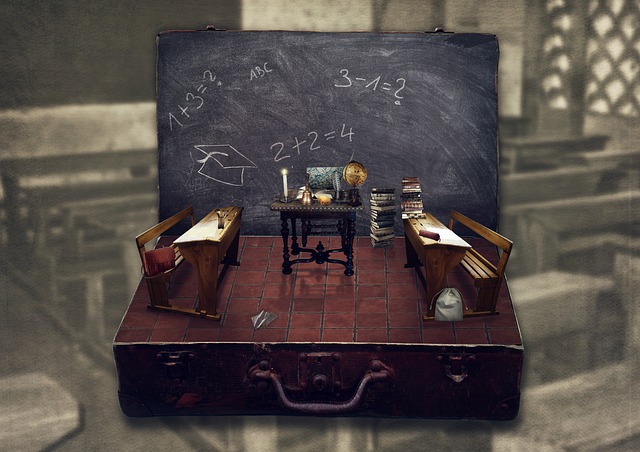New Year, New Goals and the Mind of A Beginner
 The Buddha says that we should start with the mind of a beginner.
The Buddha says that we should start with the mind of a beginner.
Do you find this hard?
I find this hard.
This is hard for me when it comes to setting goals in this season of my fitness life.
Maybe you find yourself encumbered by the baggage of things you’ve done in the past.
We all have experiences that we carry with us that get in the way. They prevent us from seeing clearly. They prevent us from living in the present.
They can be positive baggage as well as negative baggage.
Which is a strange concept. How can you have positive baggage? How can that hold you back?
Maybe you’ve accomplished big things before. What is your motivation to do it again? Or do some paler version of it again? You look at where you are, and a new project or goal can seem overwhelming because you’re starting at zero. You’ll never climb back up to the peaks you scaled before.
In this way the positive accomplishments of the past become negative dampers on your motivation.
Maybe you’ve run out of projects and goals that compel you. It’s hard to get motivated when the slow 5 miles in front of you seems small in comparison to that time you ran 13 marathons in one year.
Or that baggage can be negative. Maybe the ghosts of past failures get in your way? You think of that time you tried to lose 10 pounds and failed. Not once but many times. Looking down at the scale today, you just don’t want to face that again.
But, my friends, these things are ghosts.
They are ghosts of a different time and a different you. Today, right now, is a fresh day, and the ‘you’ that is starting out is a fresh you.
To begin you need to have the mind of a beginner. You need to clear the way by unburdening yourself of history.
There is only now. There is only today.
The way forward is dependent on what you do with today.
So take whatever time you need to unload that baggage. To sweep out those ghosts. To smile and thank them and pat them on the back.
It’s time to forget about the goals and the triumphs and the sins of the past.
It’s time to start with the mind of a beginner and the starting point is to consider your ‘why’.
What you take on as a new project or goal should align with your ‘why’.
Your ‘why’ is going to transcend your history.
Why do you want to set a new goal or start a new project for this year?
Let’s go back to fitness.
The reason I take on a new fitness goal is to support my life goals, my ‘why’.
When you commit to train and run, why are you doing it?
When you look at the scale and decide to lose those 20 pounds, again… why are you doing it?
You are doing it to make yourself healthier, more physically fit, so that you can feel better, think clearer and be a better person for those that depend on you.
You are becoming a better person, a better version of yourself – or maintaining the better person you have nurtured.
This is your primary why, and you will find that fitness projects become keystone events that unlock a host of other benefits. You meet new people. You learn new things. You pull into your wake others that you inspire.
The project becomes an enabler and a transformational activity. Like removing the one blockage that lets the flood flow through.
That supports your why of being a happier, healthier citizen of the world.
Different people have different motivators.
What’s yours? How do you give it life and power?
Write down your why statement and post it on your wall. Read it every day. Maybe create a vision board that visually represents your why and your future state.
Whatever works for you, do it, because at some point in the process you will get lost and need to return to your ‘why’.
How do you get started once you have your why?
Pick something that is measurable and time-based. The time and measurability allow you to stay motivated. Once you have a streak going it’s psychologically hard to break. If it’s not measurable you can’t celebrate progress or make the necessary in-flight adjustments.
This is why structured events, like a marathon are so convenient as goals. They come pre-packaged with a measurement system and a date. That makes everything else easy.
You don’t need a structured event to make a goal measurable and time-based. For example, let’s say your chosen activity is walking. You can set up your own event. Something like “I will walk 10 miles on May 5th to celebrate Mexican independence.”
Another way to do this, which is a great way to build habit and consistency is to do Day-Based-Streak plans. These can be anything. 5-day plan, 20 day plan, one week, one month, etc. I’m going to write for 20 minutes a day for 30 days,” or “I’m going to walk 20 minutes a day for 20 days.”
This gives you an almost immediate way to achieve and track progress and keeps a project from becoming overwhelming.
What about the size of the goal? That goes back to your why.
(And notice that I avoided saying ‘size doesn’t matter’ 
People seem to think that if it’s not a massive and outrageous, outsized goal it doesn’t count. Not true. If all you’re trying to do is maintain or build a healthy lifestyle, you don’t need to sign up for an IronMan triathlon.
That being said, if your ‘why’ is to break yourself out of a pattern and do something that will change your life, then a big hairy goal will do that. A big hairy goal forces you to ask some very hard questions. It will force you way out of your comfort zone. It will force you to change your life.
Do you want to change your life? If that’s your why, then pick a goal that will beak you out of your comfort zone. The journey to that goal, whether you achieve it or not, will change you.
Now that you have your ‘why’ and your measurable, time-based goal, what do you do next?
The next thing I would do is figure out what your plan is to get there.
Start with some basic research. Google it with a ‘how to…’ question. Ask someone who’s done it before. Do some basic casting about for information around this new goal. You can do this research before you commit to the goal as well, so you get a flavor what you’re in for.
The next thing that all successful people do is called ‘modeling’. Modeling means you find someone who has done it already and learn from them. Do what they did. Learn from their success. Learn from their challenges. Why reinvent the wheel?
This will give you confidence.
Along these same lines it’s great to find a coach. A coach is the perfect example of modeling.
It can be as simple as watching someone’s YouTube videos or following their blog. But, investing, paying money out of your pocket for a coach creates another great psychological way to hold yourself accountable. Whether you need a shoulder to cry on or someone to tell you to stop being a whiner, a coach will help you succeed.
Along with a coach you may want to engage other people in your quest. This can be as simple as posting your progress on social media for all to see. It can be as specific as having an accountability partner who is also trying to achieve a goal. The power of social accountability will keep you on track when things get hard.
Let’s summarize:
How do you get started on a new fitness project (or any project for that matter)? How do you create a compelling goal that is appropriate for you? How do you set yourself in motion towards that goal? How do you stay with it and succeed?
- Embrace the mind of a beginner and start where you are today.
- Find your ‘why’ and make sure it is heartfelt and emotionally compelling.
- Find a goal that motivates you and aligns with your ‘why’.
- Make it measurable and time-based.
- Research, learn and do discovery around your project.
- Find people who have done it before.
- Model those who have done it before, learn from them.
- Get a coach.
- Find a tribe of supporters and accountability partners.
- Go for it.
On a more personal note, my goal for this year is to get to the starting line of a marathon in April or May. I’ve been working with a persistent stress injury in my left knee, and I’m not getting any younger. It is not appropriate for me to go for a big goal right now.
I must start where I am.
My ‘why’ is to be able to continue to live an endurance lifestyle and participate in the events I love for the next 20 years. To do this, I have to forget everything I’ve done in the past, start from first principals and find a new approach.
I need to have the mind of a beginner.

